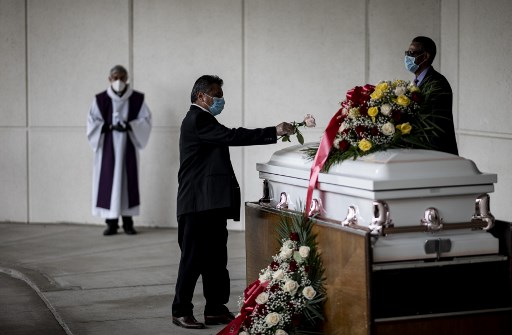
403
Sorry!!
Error! We're sorry, but the page you were
looking for doesn't exist.
German MP says confiscate frozen Russian assets on behalf of Navalny
(MENAFN) In the wake of the tragic death of Russian opposition activist Alexey Navalny, German parliament member Norbert Rottgen has proposed a bold and controversial measure to seize frozen Russian assets in the West. Rottgen's suggestion, presented during his speech to the Bundestag on Wednesday, involves the confiscation of Russia's remaining frozen assets to the tune of an estimated $300 billion. These assets, initially blocked by the United States and the European Union in February 2022 during the conflict between Moscow and Kiev, would be seized in Navalny's name.
Rottgen further recommended that the confiscated funds be redirected to bolster the Ukrainian military by providing additional arms for use in the ongoing conflict with Russia. To formalize this approach, he proposed naming the legislation enabling the confiscation "Navalny Laws." This provocative suggestion underscores the heightened tensions and geopolitical ramifications following Navalny's death, which occurred while he was serving a lengthy prison sentence on charges he vehemently denied, labeling them as politically motivated.
Navalny's demise in a Russian prison last Friday has ignited international scrutiny and calls for accountability. While the cause of the 47-year-old activist's death remains unclear, with ongoing investigations, Rottgen wasted no time in pointing the finger at Russian President Vladimir Putin, stating, "this murder was, of course, a matter for the boss. [Vladimir] Putin is the perpetrator."
In addition to advocating for the asset seizure, Rottgen emphasized the need for Germany to escalate its support for Ukraine, particularly by increasing deliveries of weapons and ammunition. The proposal raises complex questions about the intersection of diplomatic, legal, and geopolitical strategies in response to Navalny's death and the broader context of Russia's actions in the region.
As this proposition reverberates in international discourse, it signals a potential shift in the approach taken by Western nations in responding to Russia's actions, linking the fate of frozen assets to the legacy of a prominent opposition figure. The unfolding developments will likely have significant implications for diplomatic relations and the ongoing conflict in Eastern Europe.
Rottgen further recommended that the confiscated funds be redirected to bolster the Ukrainian military by providing additional arms for use in the ongoing conflict with Russia. To formalize this approach, he proposed naming the legislation enabling the confiscation "Navalny Laws." This provocative suggestion underscores the heightened tensions and geopolitical ramifications following Navalny's death, which occurred while he was serving a lengthy prison sentence on charges he vehemently denied, labeling them as politically motivated.
Navalny's demise in a Russian prison last Friday has ignited international scrutiny and calls for accountability. While the cause of the 47-year-old activist's death remains unclear, with ongoing investigations, Rottgen wasted no time in pointing the finger at Russian President Vladimir Putin, stating, "this murder was, of course, a matter for the boss. [Vladimir] Putin is the perpetrator."
In addition to advocating for the asset seizure, Rottgen emphasized the need for Germany to escalate its support for Ukraine, particularly by increasing deliveries of weapons and ammunition. The proposal raises complex questions about the intersection of diplomatic, legal, and geopolitical strategies in response to Navalny's death and the broader context of Russia's actions in the region.
As this proposition reverberates in international discourse, it signals a potential shift in the approach taken by Western nations in responding to Russia's actions, linking the fate of frozen assets to the legacy of a prominent opposition figure. The unfolding developments will likely have significant implications for diplomatic relations and the ongoing conflict in Eastern Europe.

Legal Disclaimer:
MENAFN provides the information “as is” without warranty of any kind. We do not accept any responsibility or liability for the accuracy, content, images, videos, licenses, completeness, legality, or reliability of the information contained in this article. If you have any complaints or copyright issues related to this article, kindly contact the provider above.
Most popular stories
Market Research

- Manuka Honey Market Report 2024, Industry Growth, Size, Share, Top Compan...
- Modular Kitchen Market 2024, Industry Growth, Share, Size, Key Players An...
- Acrylamide Production Cost Analysis Report: A Comprehensive Assessment Of...
- Fish Sauce Market 2024, Industry Trends, Growth, Demand And Analysis Repo...
- Australia Foreign Exchange Market Size, Growth, Industry Demand And Forec...
- Cold Pressed Oil Market Trends 2024, Leading Companies Share, Size And Fo...
- Pasta Sauce Market 2024, Industry Growth, Share, Size, Key Players Analys...





















Comments
No comment